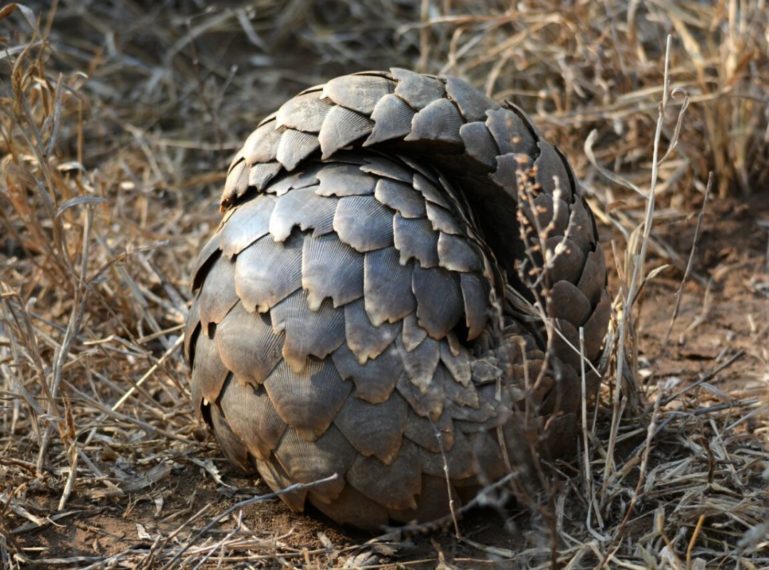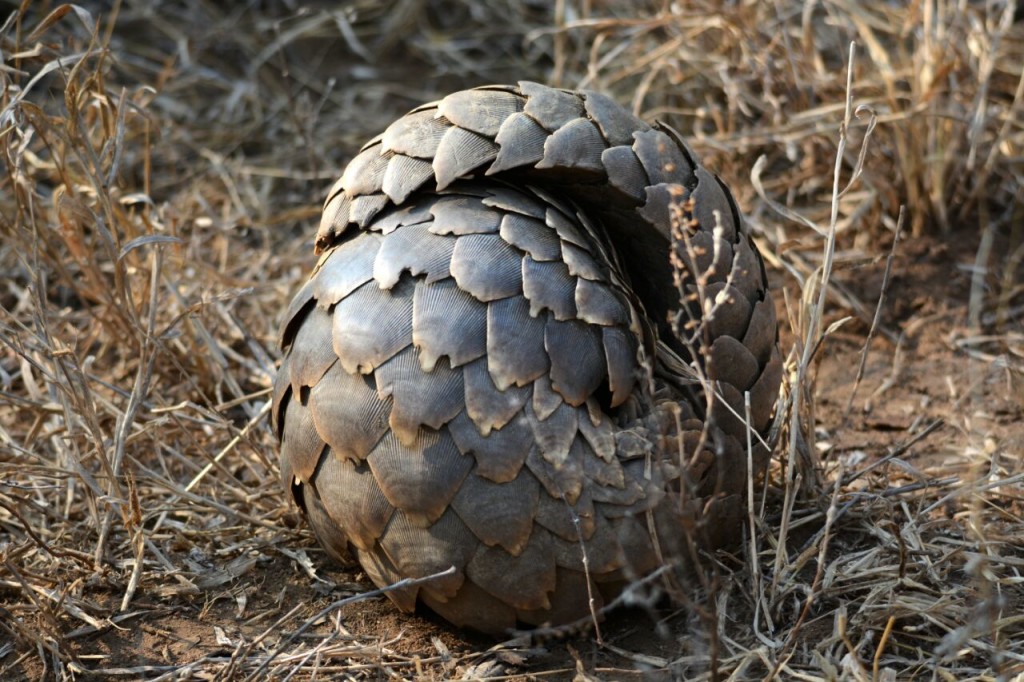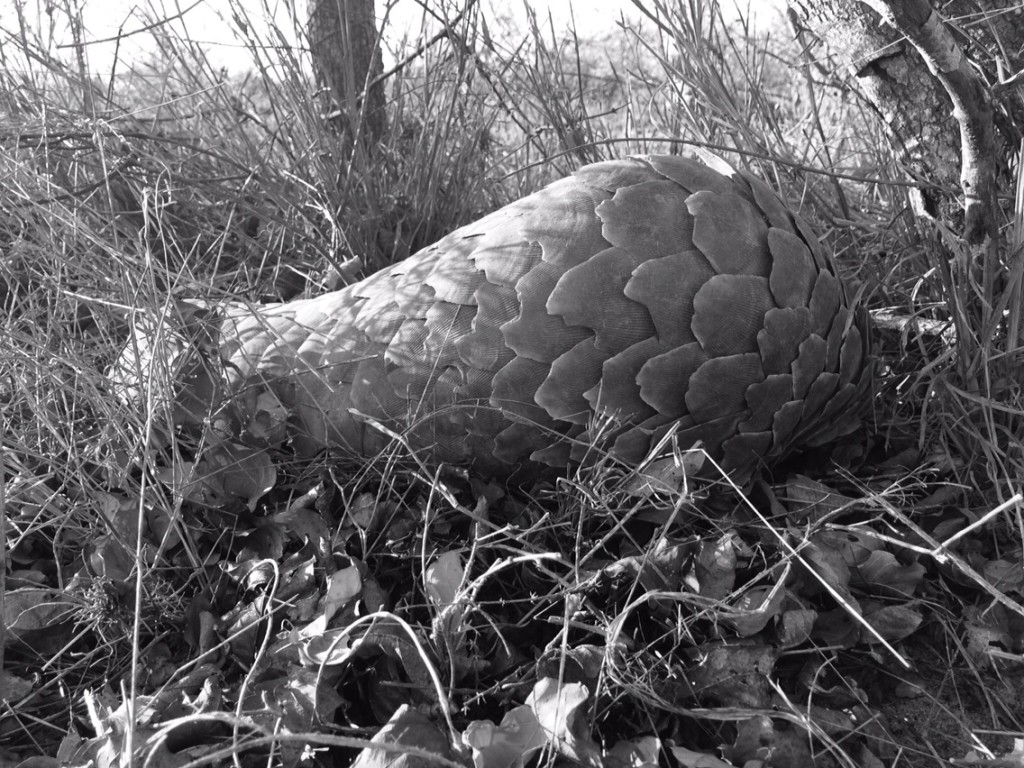
The pangolin is a somewhat shy and solitary nocturnal creature endemic to Asia and Africa. Due to worldwide poaching and the illegal trade of wildlife, the pangolin is now on the endangered species list. These animals are incredibly difficult to spot in the wild because of their neurotic tendency to skirt away when approached. Their defense mechanism comprises two techniques – to make a quick exit or roll themselves into a tight ball. When the ball position is assumed, the body is hugged by the tail which has the sharp edges protruding outwards.
The pangolin is often mistaken for being a reptile because of its scaly, armoured appearance. It is, in fact, part of the Manidae family whose members include anteaters, armadillos and sloths. This “spiny anteater” has a multi-layered covering of scales which are keratin based and make-ups 15% of its entire body weight.
Spotting a nocturnal endangered species is quite rare, which is why the team from nDzuti Safari Camp decided to celebrate this momentous occasion. Bruce managed to take photos and expert guide, Brett Greenaway, took video footage. The pangolin clearly felt comfortable in its environment and was blissfully unaware that he was being watched. When under threat, a pangolin not only curls into a ball but also secretes a noxious-smelling acid from glands near the anus, quite similar to that of a skunk. Let’s hope Bruce and Brett weren’t faced with a foul smelling odor!
Bruce from nDzuti spent a considerable amount of time observing the antics of nature’s curious lone-ranger of a creature. Using his incredible innate tracking skills he eventually found the pangolin close to an aardvark burrow, which is where they sleep.
In the video we see the pangolin frantically scratching and digging away. We can only assume it was foraging for its favourite source of protein – ants. A pangolin’s sharp claws are used to destroy nests and break-open termite mounds littered with armies of ants. They use their long, sticky tongues to extract ant armies.
Seeing a pangolin in the wild should be a highlight on your safari bucket list!


Leave a Comment